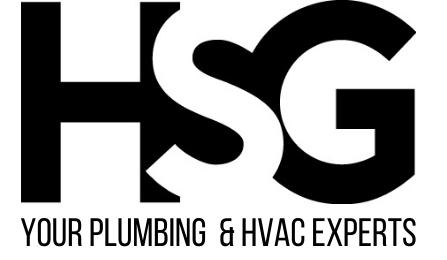If you’re unlucky enough to have experienced a plumbing catastrophe, you likely know just how important it is to proactively maintain your drains. The drains in your sinks and showers are crucial pieces of the plumbing puzzle. Neglect can lead to disaster.
Luckily, there are several things you can do as a homeowner to prolong the life of your plumbing system, just by giving attention to your drains. Like most things, regular cleaning and maintenance can go a long way. Do a little bit of work today to avoid clogged pipes and an enormous repair bill tomorrow.
Here are a few proactive drain cleaning tips to avoid a plumbing disaster:
Consistency is the Name of the Game
When it comes to the drains in your sinks and showers, consistent cleaning is the key. By being aware and attentive to the health of your drains daily, you can avoid a really bad situation down the road. This approach will end up saving you money in the long run. Regular attention and maintenance will come with a small cost, but waiting for the worst to happen will be flat-out expensive.
On top of that, by proactively cleaning your drains, you’ll eliminate bacteria. Bacteria won’t stand a chance if you’re constantly in there with the drain snake and cleaning products. But if you neglect your drains, that’s when a buildup of bacteria can happen.
Stop Blockages Early On

There are several ways to proactively stop major blockages from happening in your drainage system. The key is to eliminate them while it’s manageable to do so – wait too long and you’ll need professional help.
Most people use chemical drain cleaners to take matters into their own hands when clearing blockages. While these products can be effective in some cases, they aren’t ideal. For one, they’re highly toxic. The liquid itself ends up in our water supply, and residue from the bottles stays in our landfills. This can be harmful to our environment and wildlife. But chemical drain cleaners can also cause damage to your drain system. The highly corrosive liquid can damage your pipes, especially if you’re using the product on an ongoing basis.
As an alternative to corrosive chemical drain cleaning products, try a home remedy. There are some surprisingly effective ways to clear blockages without using damaging store-bought liquids – mostly all of which include baking soda. One of the more well-known homemade drain cleaning remedies is just baking soda, vinegar, and boiling water. Pour 1/2 cup of baking soda and then 1/2 cup of vinegar down your drain. Then cover your drain and wait one hour. When the hour is up, pour boiling water down the drain (and repeat if necessary). Voilà!
Another way to address minor blockages DIY-style is to get yourself a drain snake. If your sink or shower is draining slowly, that’s a good sign there’s a clog, multiple feet down in your drain. For that, you can try using a drain snake – a metal cable coiled into a protective drum with a corkscrew mechanism on the end.
Don’t Let Bad Odors Linger

One sure sign that a buildup is starting in your drain is a bad smell. This odour can begin to permeate throughout your home until it becomes unnoticeable. That’s when the real problems start. If you ever smell something awful coming from your sink, give it your attention right away.
To eliminate these odours before they happen, one of the most effective drain cleaning practices is to run hot water down your drain regularly. When you’re finished with the dishes in the evening, crank the heat up and let the water run for a good 60 seconds. This will help loosen up any minor blockages and keep your system running smoothly. The combination of pressure, forced water and heat can work wonders, so don’t overlook this seemingly simple technique.
Dispose of Waste Correctly

One of the best ways to proactively avoid a plumbing disaster is to mind the items you’re putting down your drain. In fact, you can likely avoid clogs completely just by being mindful about what gets dumped into your sink. Here are some tips:
- Coffee grounds do not belong in the sink. Garbage them if you have to, or add them to your compost or mulch pile.
- When grease is in its liquid form, it may seem like a good idea to pour it down the drain. Never do this. Instead, wait until the grease has cooled down into a solid state, and throw it away. An old can under the sink works great if you don’t want to wait.
- If you don’t have a garburator, avoid throwing food scraps down the drain as much as possible. All food scraps should end up in your garbage, compost or organic waste bin.
- Buy a strainer for your sink. The strainer will catch any unwanted food scraps, and go a long way in preserving the smooth function of your drain.
Get Professional Help
To prolong the life of your drainage system and avoid a disaster, you can’t be afraid to call in professional help. It’s a good idea to call a plumber once a year just to make sure everything is running smoothly. Often, they’ll be able to spot and prevent blockages that could be catastrophic down the road.
And if you notice your drain is already clogged, calling a professional is the best thing to do. For experienced pros armed with the proper equipment, most drain blockages are no problem. Avoid the hassle of trying to fix the issue yourself, which can be frustrating and time-consuming, and seldom results in a permanent solution.
Call Hudson Service Group, the local experts in drain cleaning. Our specialists come with the tools necessary to unclog any blockages and identify any potential issues down the road. Plus, we’ll quote your job for free. Contact us today!
